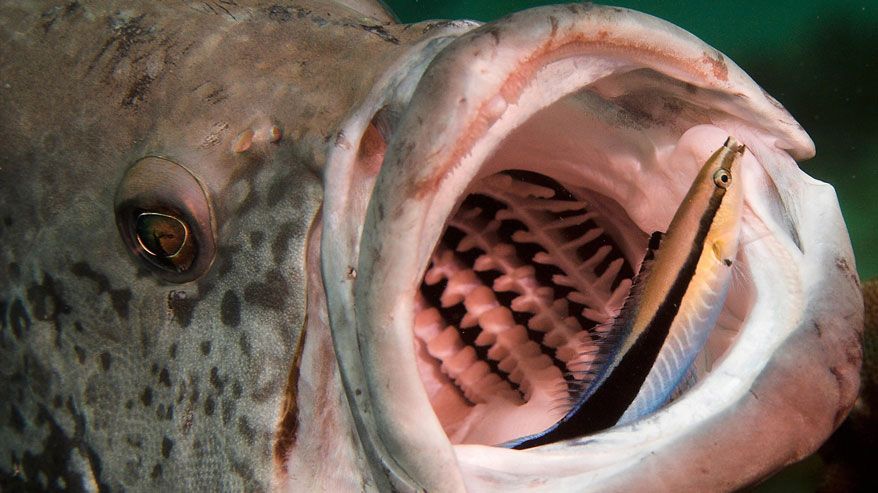The California filmmaker Ryuji Chua recently appeared on Trevor Noah’s The Daily Show to speak about his 40 minute YouTube documentary, How Conscious Can a Fish Be? Chua presents his idea that fish experience consciousness not so differently from humans.
In his short film, Chua diverges from the widespread viewpoint that humans are at the top of the food chain. Instead of embracing this imperial thought, Chua invites to the table the same thought many ancient and Indigenous civilizations have often embraced; humans are to nature and its offspring far more similar than dissimilar, “Fish are criminally underrated,” Chua states.

It’s true that scientists have not found a cerebral cortex (the part of the brain which is fundamental to consciousness) in fish. However, we do know fish can problem solve. Problem solving is a feature of the cerebral cortex.
So, what if fish are conscious and do feel, but in their own way, making them indistinguishable from other animals and mammals?
Using the findings of an experiment done on the bluestreak cleaner wrasse (a fish found on coral reefs from Eastern Africa across the Red Sea to the French Polynesian islands), scientists conducted an experiment in which they served a portion of fish food served on a blue plate and a portion of fish food served on a red plate to the wrasses. Regardless of the plate the bluestreak cleaner wrasse started with, the researchers would always take away the blue plate. Except, if the wrasse started with the blue plate, the fish always got a second serving. Whereas if the wrasse started with the red plate, they did not receive a second serving. The wrasses figured out Pavlov’s Law-esque puzzle quickly. To put things in perspective, the same researchers constructed a correlative food puzzle for comparison to three primates: Chimpanzees, Orangutans and Capuchins and one human, a four-year-old kid. None of which cracked the solution to the puzzle.

Chua’s objective is to invite an idea to our attention: not who is smarter than whom, but all animals solve problems depending on the environment they evolved in, and therefore can sometimes adapt to problems others can’t, which proves fish experience their version of consciousness. The experiment done on bluestreak cleaner wrasses was unknowingly an apt representation to the environment that they endure in the ocean. Their survival is based on problem solving because their purpose is to determine how to save other fish, as their diet consists of parasites on other fish’s scales. Unlike a monkey, whose diet is the jungle’s vegetation and is therefore unconcerned with food-based problem solving. Or a four-year-old, who is fed by their caregivers and is emotionally developing to attune themselves to their caregivers. However, if a different experiment was presented more attuned to either mammals environment, the monkey or the child could outweigh the wrasses, or even each other.
Chua is not the only one who is objecting to the long standing ignorance of fish, the United Kingdom passed a law in November of 2021 that lobsters, octopuses and crabs are to be recognized as sentient beings under their Animal Welfare Bill. This is a huge step forward for the emotional well-being and outstretched empathy towards sealife. What are the next steps for the rest of the world to protect fish and to fund experiments to prove that they’re conscious, equipped with their own abilities and are valuable life? The United Nations Sustainable Development Goal of Life Below Water sets out to protect and conserve marine resources and seas, because our aquatic life is vital to the earth. The wrasse fishes use their consciousness to take care of each other—we should take care of them and other sealife in return.
Watch How Conscious Can A Fish Be? here.
